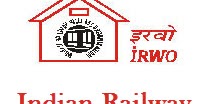
INDIAN RAILWAY WELFARE ORGANISATION
- States Active In: Punjab, Rajasthan, Tamil Nadu
| CIN | Not Available |
|---|---|
| Year Established | Not Available |
| Address | Not Available |
| Company Status | Not Available |
Overall Case Outcomes
Introduction
In the realm of real estate, the reputation of a builder is paramount for prospective homebuyers. The Indian Railway Welfare Organisation (IRWO) has been a prominent player in the industry, managing multiple projects across various states including Tamil Nadu, Rajasthan, and Punjab. This blog post delves into IRWO's track record based on legal complaints and cases that shed light on its operational efficacy and customer satisfaction.
Case Overview
With a total of 51 complaints filed against it, IRWO has had its share of challenges. Of the 51 cases, it won 31 and lost 20, indicating a mixed reception among its clientele. Here, we analyze the outcomes of the builder’s legal battles to draw meaningful conclusions regarding its service quality and construction reliability.
Cases Lost by the Builder
The data reveals a pattern in the cases lost by IRWO:
- Quality of Construction and Delays: Several complaints were lodged regarding poor …
Cases Lost by Builder (When Defending)
Yearly Trend for these Cases
Common Topics
Analysis of the cases filed against the builder Indian Railway Welfare Organisation, where the builder lost, revealed significant insights into their legal disputes. The cases primarily revolved around a few common themes, highlighting persistent issues in the builder's operations.
The majority of the cases centered around the Failure to Submit Quarterly Progress Reports (QPRs). In these instances, the appellants consistently claimed that the builder had not adhered to the required timelines for submitting QPRs on the RERA web portal. The builder's defense often revolved around claims of successful submission, yet the Authority frequently found evidence to suggest otherwise, resulting in direct penalties and warnings about potential registration revocation.
Penalties for Non-Compliance and Project Delays emerged as another significant theme. Many cases illustrated a pattern where the builder faced penalties due to late submissions of QPRs or failure to comply with the Real Estate (Regulation and Development) Act, 2016, and …
Individual case details available for subscribers.
Cases Won by Builder (When Defending)
Yearly Trend for these Cases
Common Topics
An analysis of the cases filed against the builder, INDIAN RAILWAY WELFARE ORGANISATION, which the builder won, revealed the following information. These cases encompass several key themes, including Delayed Possession Claims, Non-compliance with Regulatory Reporting, Quality of Construction Claims, and Disputes over Financial Settlements.
- Delayed Possession Claims: Some complaints revolved around the assertion that projects were not completed when possession was taken. However, even in such cases, the builder successfully established that homeowners had accepted their properties years earlier without complaints, undermining their subsequent claims.
- Non-compliance with Regulatory Reporting: A significant number of cases involved allegations regarding the Builder's failure to submit Quarterly Progress Reports (QPRs) on the RERA web portal. The builder countered these claims by showing that reports had been submitted but were not reflected online due to technical issues, demonstrating compliance with regulatory requirements even if there were hiccups in public transparency.
- Quality of Construction …
Individual case details available for subscribers.
Builder Reviews
No reviews for this builder yet. Be the first one to share your thoughts!
Submit Your Review
Interested in buying from INDIAN RAILWAY WELFARE ORGANISATION?
Leave your details – our team will call you back within 5 minutes.